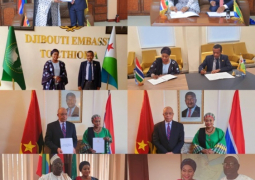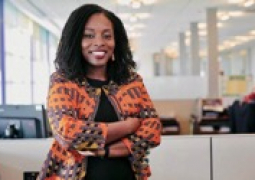
Voice notes, video clips, GIFs, and memes are reshaping how Gambians connect, share information, and express themselves in the digital world, providing easier access for consumers and traders.
According to research conducted by DataReportal, the use of multimedia messaging apps such as Facebook Messenger, TikTok, Instagram, and Twitter (now X) increased by over 50% in the past two years. The rise of affordable smartphones and data plans has made it easier for Gambians, even in rural areas, to share videos, images, and audio clips said the research.
Njagga Sowe, a multimedia lecturer and communication expert, highlights the shift toward visual and auditory content, stating, "multimedia is essential because it creates a global village." He points out that Gambians focus primarily on social media marketing but must explore other areas, especially email marketing and Search Engine Optimization (SEO), which are underutilised in the country.
Sowe emphasises the need for better SEO practices and the potential of affiliate marketing to combat unemployment among youth. He notes that while some schools are introducing digital marketing education, participation remains low.
"As traditional marketing declines, businesses must adopt diverse digital strategies," Sowe asserts, stressing the importance of understanding target audiences and improving marketing awareness to keep pace with digital trends.
In a similar vein, Babucarr Manka, proprietor of StateOfMic media, a documentary filmmaker and storyteller, noted that in today's multimedia age, sharing and experiencing stories has become indispensable. This evolution, he added, has broadened his horizons, allowing him to explore local and global narratives through various formats beyond just text.
"In The Gambia, digital platforms have transformed engagement, particularly during the recent elections, where online discourse played a crucial role. Unlike traditional media, digital platforms democratise information, allowing anyone to voice their thoughts. This has fostered a culture of information accessibility that has become a daily necessity rather than a luxury," he explained.
However, Manka emphasised that challenges remain, such as expensive and unreliable internet access. "In The Gambia, despite its small size, connectivity issues persist, especially in rural areas. There is a significant disparity in internet quality between urban and rural populations, making it difficult for those outside the greater Banjul area to engage fully with digital content," he buttressed.
Moreover, Babucarr highlighted that the democratisation of content creation has led to information overload, where the credibility of sources is often compromised. Citing the example of misinformation during the pandemic, he stated, "with no gatekeepers in digital spaces, anyone can share any information, which can lead to confusion and harm." He added: "In this evolving landscape, we must navigate the challenges of reliability and literacy while celebrating the freedom that digital media brings."
Similarly, Mr Gillen, a graphic designer and student, noted that in the modern 21st century, multimedia and digital marketing have played a pivotal role in transforming operations from analog to digital systems.
"This transition has made transactions much easier than I expected. The digital economy has dominated and boosted the global financial market, positively impacting the socio-economic well-being of the people."
Read Other Articles In Headlines

Gambia establishes diplomatic relations with Djibouti, Chad, Gabon and Angola
Sep 9, 2021, 1:28 PM
UNICEF to lead procurement & supply of COVID-19 vaccines
Sep 4, 2020, 2:42 PM



